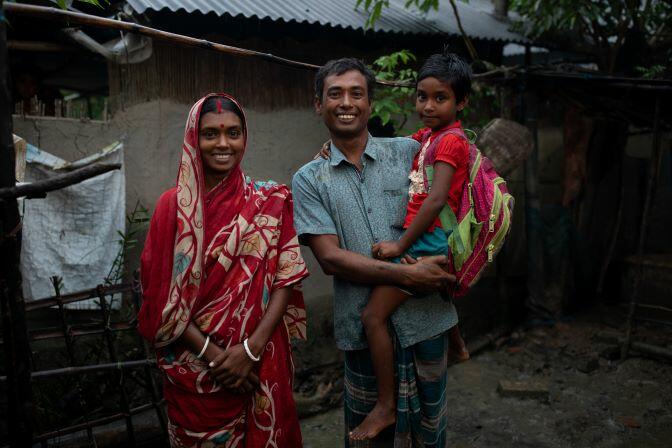Growing hope: Worms save lives in Bangladesh
Climate changeBlog
In the flood-prone region of Shyamnagar, Bangladesh, Archana Rani and her family are using vermicomposting to overcome the challenges caused by climate-driven floods. This story follows Archana’s journey of using earthworms to create fertile soil, ensuring her family’s food security and providing a stable income.
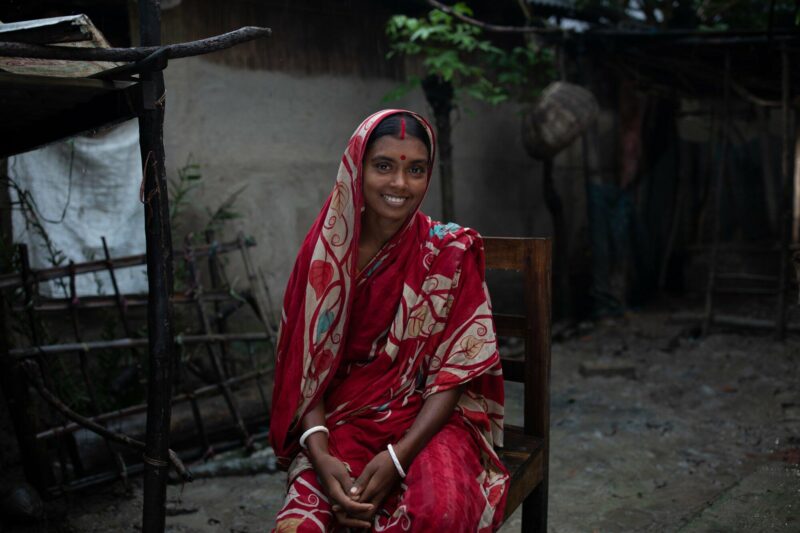
1. Archana Rani on her small farm, where she makes vermicompost and uses it to grow vegetables and fruit, as well as selling it to earn an income to support her family.
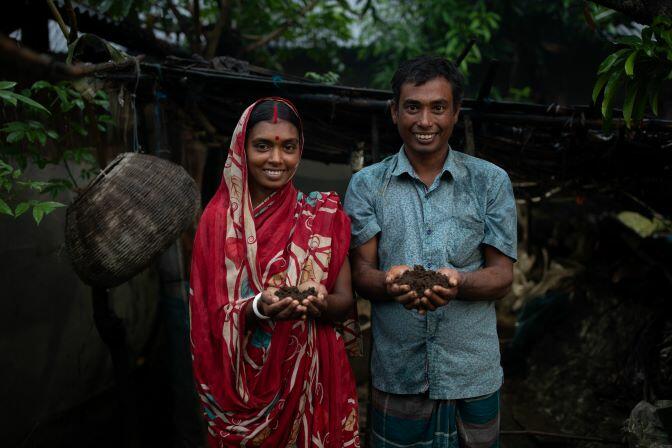
2. Archana and her husband display the vermicompost that is vital for growing crops in saline flood-affected soil. Archana’s entrepreneurship means her whole community now has access to this life-changing compost.

3. A close-up of the vermicompost, teeming with earthworms. This rich, organic soil is created using a combination of earthworm digestion and aerobic decomposition.
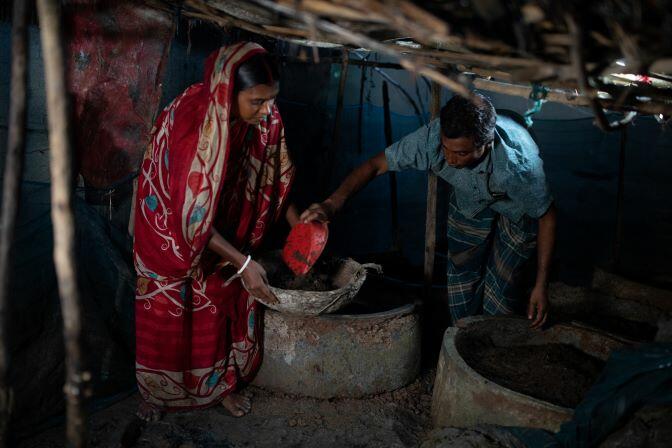
4. The couple make the vermicompost, a practice that has become central to their self-sufficiency. They learned how to produce vermicompost through Practical Action’s training.
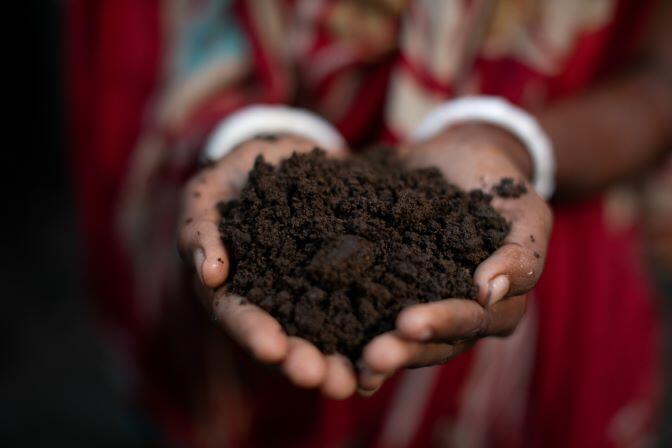
5. Archana holds the vermicompost. She sells most of it to community members with larger plots of land. She’s used the money she’s earned so far to build a cowshed and elevate her house to be more prepared and resilient for future floods and storms.
